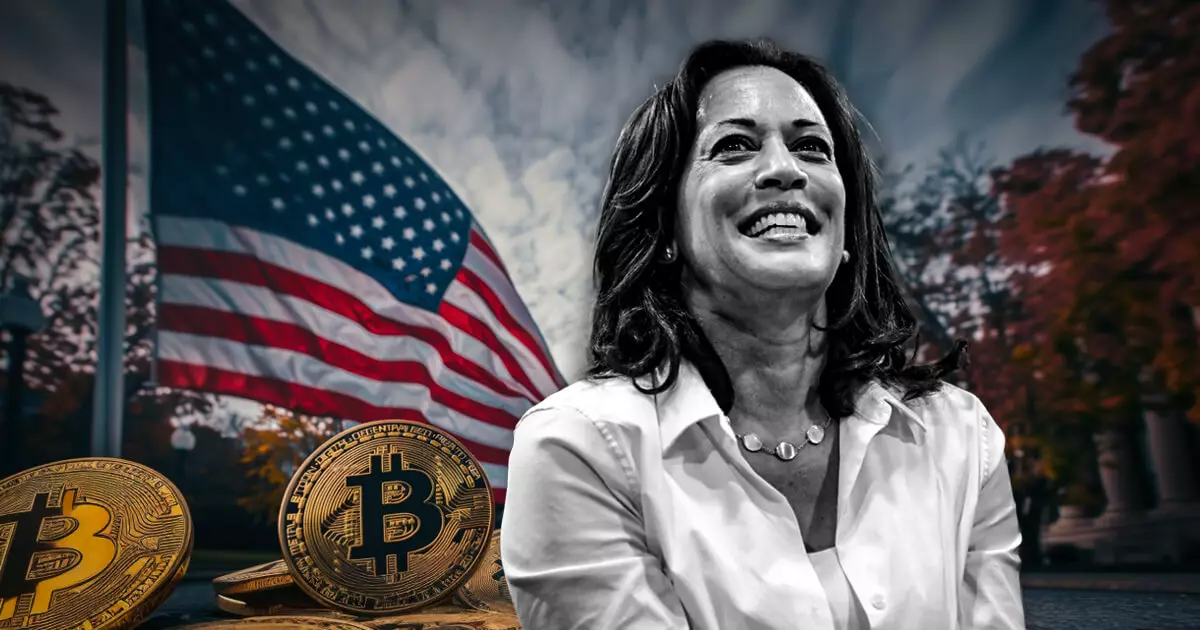As the United States approaches another presidential election, the regulatory landscape for the cryptocurrency industry hangs in the balance. Alex Thorn, the head of research at Galaxy Digital, provides a comprehensive policy scorecard assessing the positions of various presidential candidates regarding cryptocurrencies. This analysis highlights the potential impact each candidate may have on the industry, examining Vice President Kamala Harris and former President Donald Trump’s stances specifically.
Understanding the Landscape
The cryptocurrency ecosystem is notoriously volatile, and regulatory frameworks play a crucial role in shaping its future. Thorn’s scorecard reveals that a Harris presidency could present a mixed bag for the industry, while a return to Trump’s leadership may offer a more favorable environment for digital assets. Harris’ policies, though potentially more lenient than those of the current administration under President Joe Biden, are still seen as somewhat hostile, particularly regarding taxation and Bitcoin mining regulations. This indicates that while her administration may not represent a dramatic shift towards harsher regulations, it also does not promise the clarity and support many in the crypto community seek.
When it comes to tax policies, the scorecard paints a stark contrast between Harris and Trump. Thorn notes that Harris’ approach, described as “extremely hostile,” centers around her commitment to rolling back tax cuts initiated by Trump for high earners. Such policies could have downstream effects on investment in cryptocurrencies, as higher taxes may deter individuals from engaging in riskier assets like Bitcoin and altcoins. In contrast, Trump is anticipated to provide clearer and possibly more favorable tax regulations for digital assets, improving the investment landscape for cryptocurrency enthusiasts and investors.
The discourse surrounding Bitcoin mining is another area where the candidates diverge significantly. Under Biden’s rule, a proposed 30% tax on mining activities has raised concerns within the crypto community. In comparison, Harris’ campaign appears to present a marginal improvement over Biden’s stance, as her remarks are more lenient. Meanwhile, Trump’s positioning is even more favorable: he actively supports Bitcoin mining, considering it a facet of domestic manufacturing. The stark difference could lead to a resurgence in mining activities if Trump were to reclaim the presidency, providing much-needed support to an industry struggling under heavy taxation.
Banking regulations emerge as another critical battleground. Harris might entertain a shift from Biden’s harsh regulatory measures tied to the now-infamous “Operation Chokepoint 2.0,” which restricts banking access to the cryptocurrency industry. Recent discussions suggest that she may acknowledge the necessity for crypto companies to engage with banks, potentially signaling a willingness to loosen the reins. Alternatively, Trump’s campaign promises an outright end to Operation Chokepoint 2.0, allowing national banks to participate in blockchain-related activities—a move that could significantly benefit the industry by easing access to traditional financial systems.
While self-custody of digital assets is a vital component of the cryptocurrency ethos, both candidates seem to approach the topic with caution. Thorn points out that while Harris hasn’t made any definitive statements regarding self-custody, some advisors in her camp have expressed hostility towards it in the past. Trump, albeit more supportive, maintains a reserved stance, having only vaguely committed to protecting self-custody rights. This area remains critical, as the ability for individuals to securely hold their assets could impact public trust in the cryptocurrency ecosystem.
While the scorecard assesses the nuanced positions both candidates hold, it reveals Bitcoin to be somewhat insulated from potential regulatory upheavals—indicating it will likely remain unaffected regardless of the election outcome. However, the outlook for altcoins presents a more divided scenario. A Trump victory may usher in regulatory measures conducive to altcoins’ growth, potentially allowing them to outpace Bitcoin. Conversely, a Harris administration could introduce risks that might stifle innovation for these assets.
As the election nears, stakeholders in the crypto industry would do well to pay close attention to these policy evaluations. The outcomes could define not just the regulatory landscape but also the broader market dynamics for the crypto sector in the years ahead. Ultimately, while Thorn suggests limited downside risk for a Harris presidency, many in the community cautiously anticipate the potential “explosive upside” should Trump reclaim the Oval Office and implement reforms needed for a thriving digital economy.

